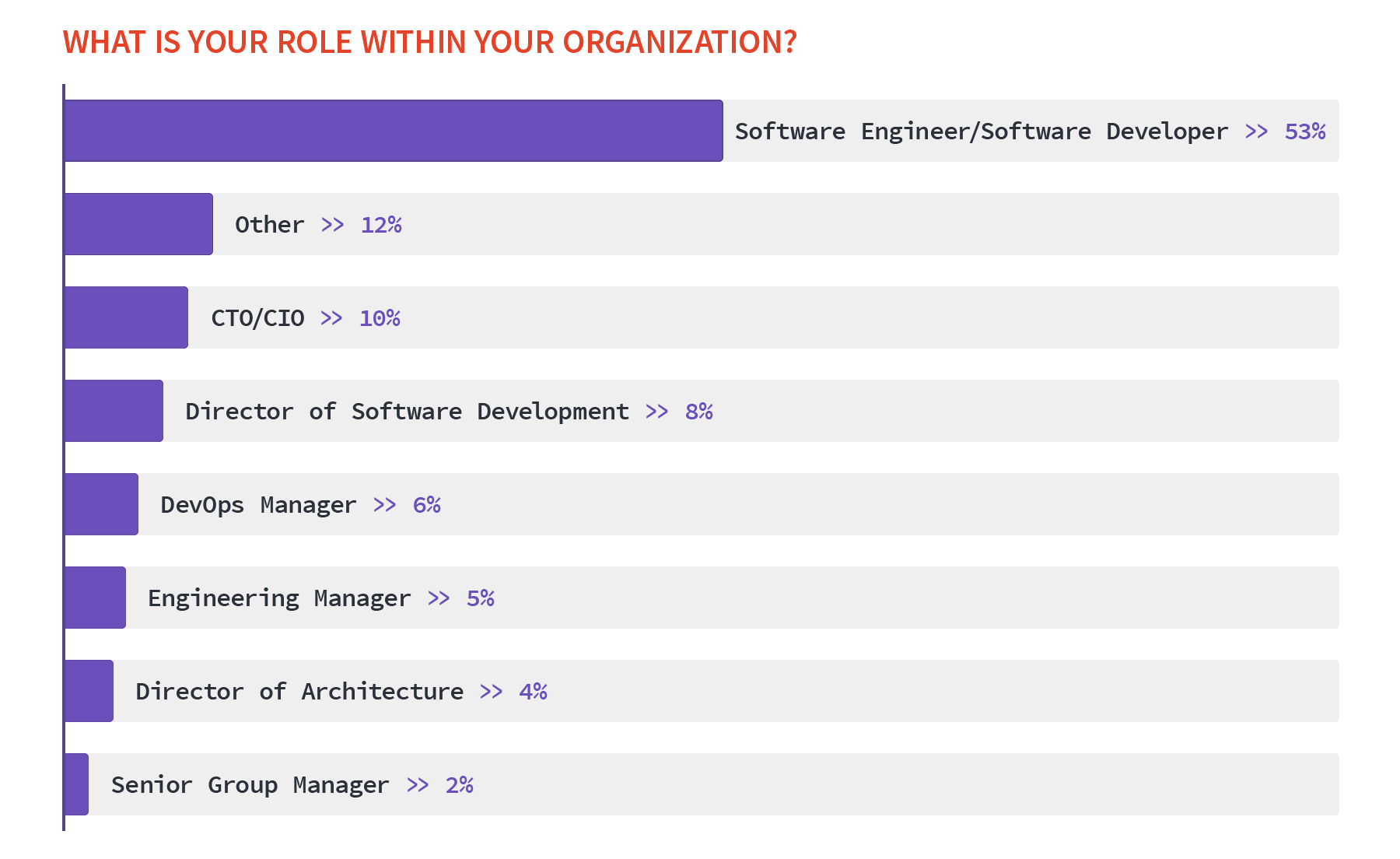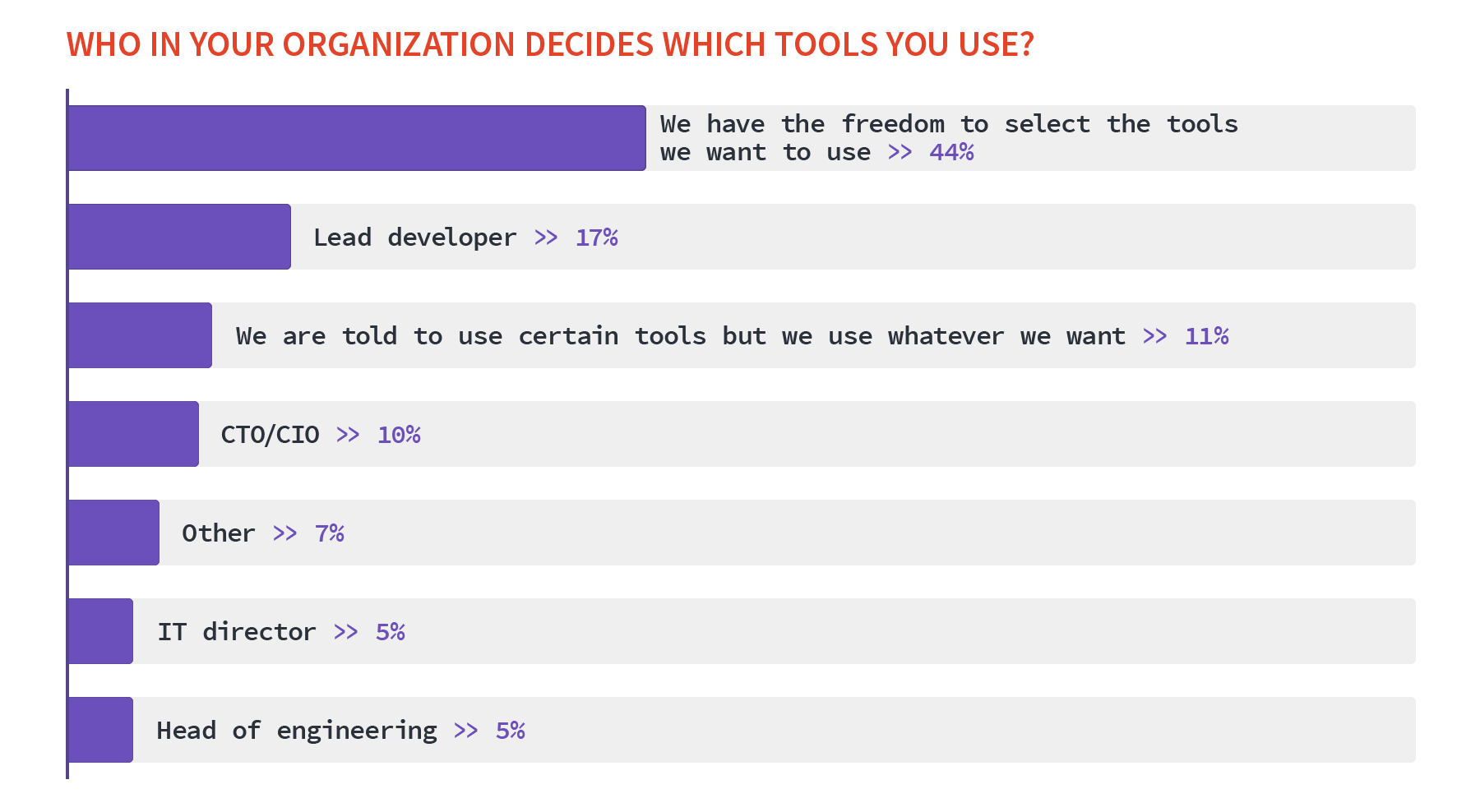Published on: February 27, 2017
3 min read
The secret to developer happiness? Use better tools
The way developers work has changed, and they’re opting to leave behind outdated tools.

Great software is built by great people—not “magic bullet” tools or technologies. However, research reveals that the tools you choose for your team may have a greater impact on developer happiness and retention that you thought. In fact, a whopping 81% of developers say that it’s critical organizations use the latest development tools and 36% go as far as to say they would reject a job if the employer didn’t use the latest tools. Why are new tools becoming non-negotiable for developers?
How better tools help software developer and engineer happiness
Developers are opinionated and rigorous when it comes building their work environment, because tools can have a massive impact on their ability to get their work done. Whether they’re losing time waiting for complicated systems to update or struggling to effectively collaborate with their team, developers are becoming more and more frustrated with tools that can’t keep up the pace their job demands.
As software development continues to trend toward distributed and open systems, process-driven methodologies are dying out in exchange for more asynchronous, collaborative workflows. One result of this setup is the empowerment of individual contributors as influencers in organizations that depend on them to beat their competition to market. Last year, we launched our Global Developer Survey to examine more closely how software development is adapting from pressures within and without, and how these changes affect the way teams work. Chief among these trends is developers' insistence on using tools that make them the most effective in their jobs; below you will find some of our key findings on how developers are bringing modern tools into the workplace.
Our respondents are in-the-know
Our sample is developer-heavy, with 53 percent of respondents identifying themselves as an engineer or developer, ensuring that their views are well-represented here.

Devs drive adoption
Our respondents told us that developers have the upper hand when selecting the tools they work with—when asked who in their organization decides which tools they use, a plurality of 44 percent said they choose their own.
The next most common response reinforces developer primacy in this area: 17 percent of respondents reported that their lead developer drives tool selection. It’s remarkable, and a clear sign of developers’ rising agency and power within their organizations, that less than 20 percent said that decision is made by their CTO/CIO, IT Director, or Head of Engineering. Tellingly, 11 percent insisted that they use whichever tools they want, even though they’re not officially in charge of the decision.

They insist on the newest and best
Developers’ increasing power to choose tooling is matched by the strength of their opinions. Eighty-one percent of respondents told us it’s critical for organizations to use the latest development tools. This insistence on using only the newest and best runs deep, even, in some cases, if it seems counter to their immediate self-interest: 36 percent of developers said they would reject a job if the organization did not use the latest tools. Once they’re satisfied with a tool, they also opt for consistency, with 91 percent of respondents telling us they’d prefer to use the same tools for work and personal projects.
For more on how devs work now, download the full report, and look out for the next in this series, where we’ll discuss the popularity of open source tooling.
Learn more about how GitLab Enterprise Edition can help your team achieve software excellence, and try for yourself!

